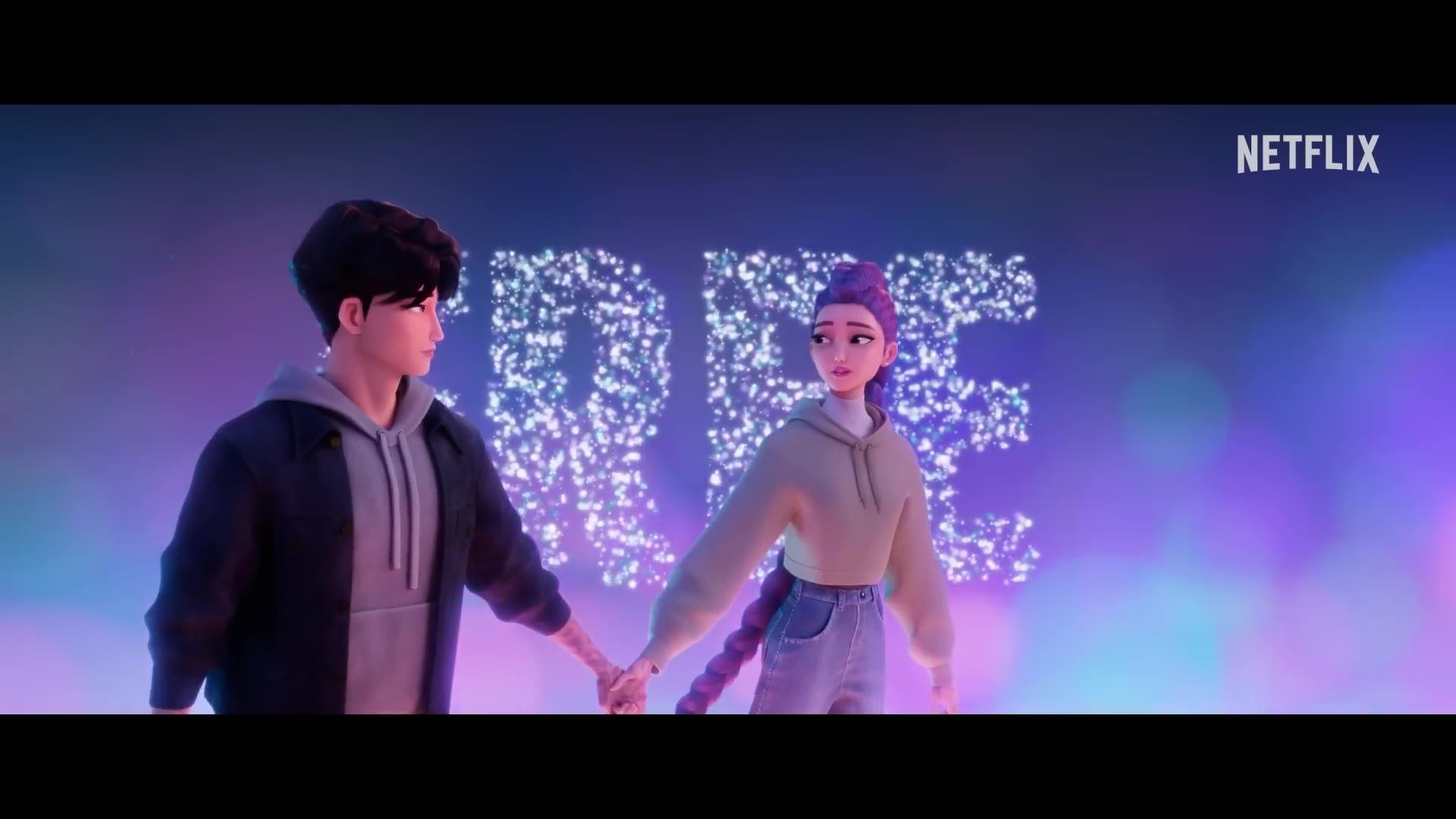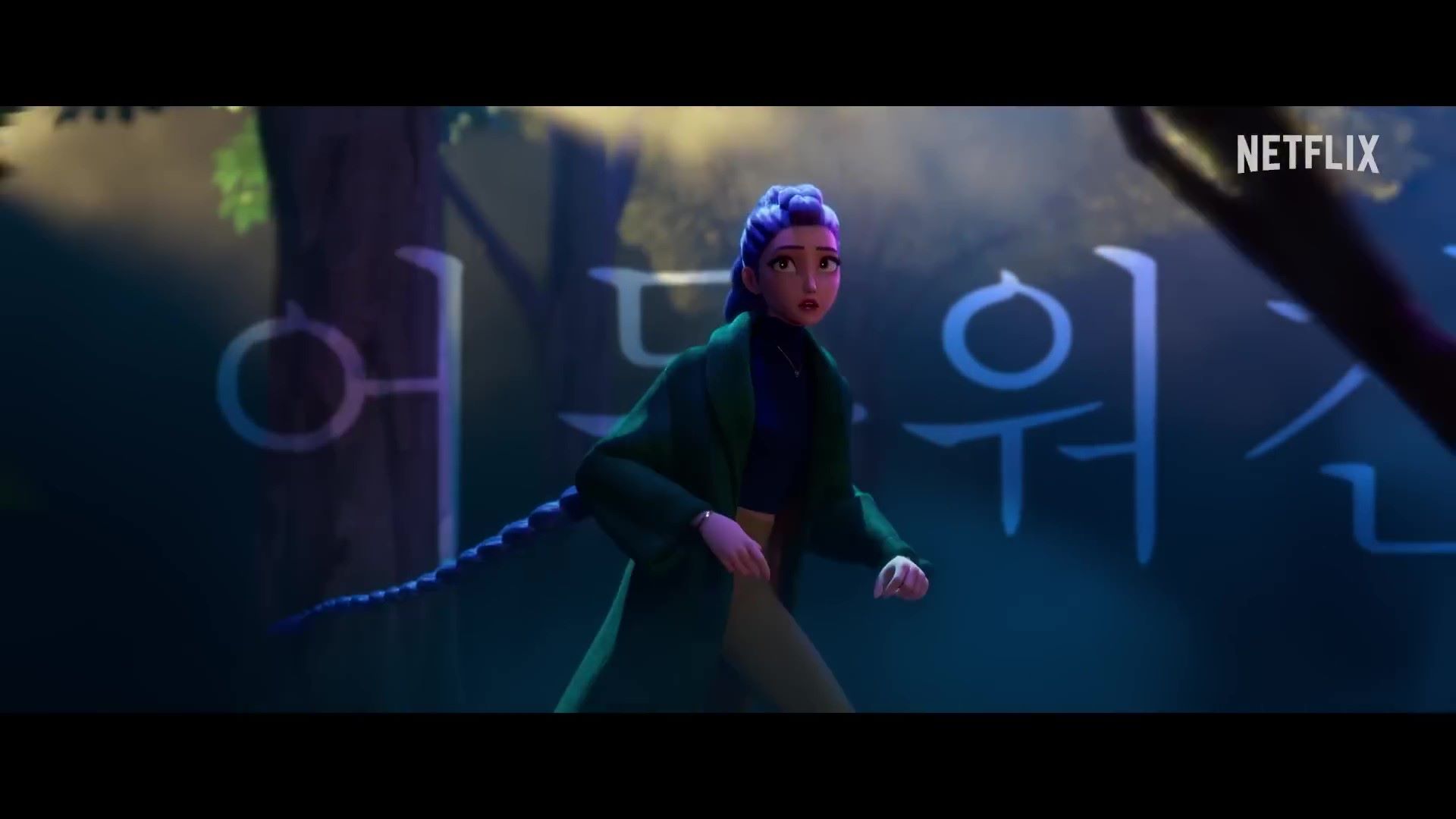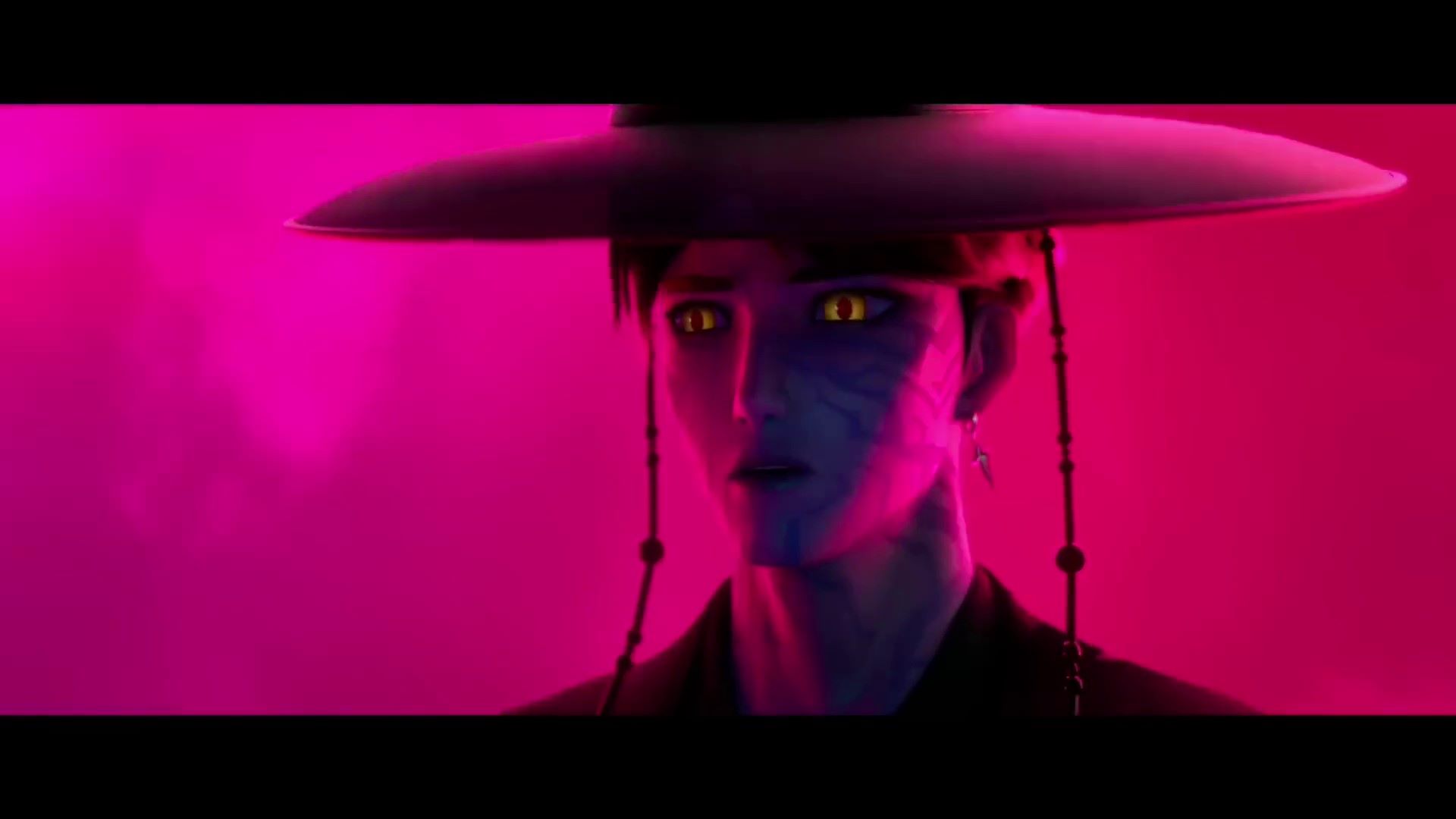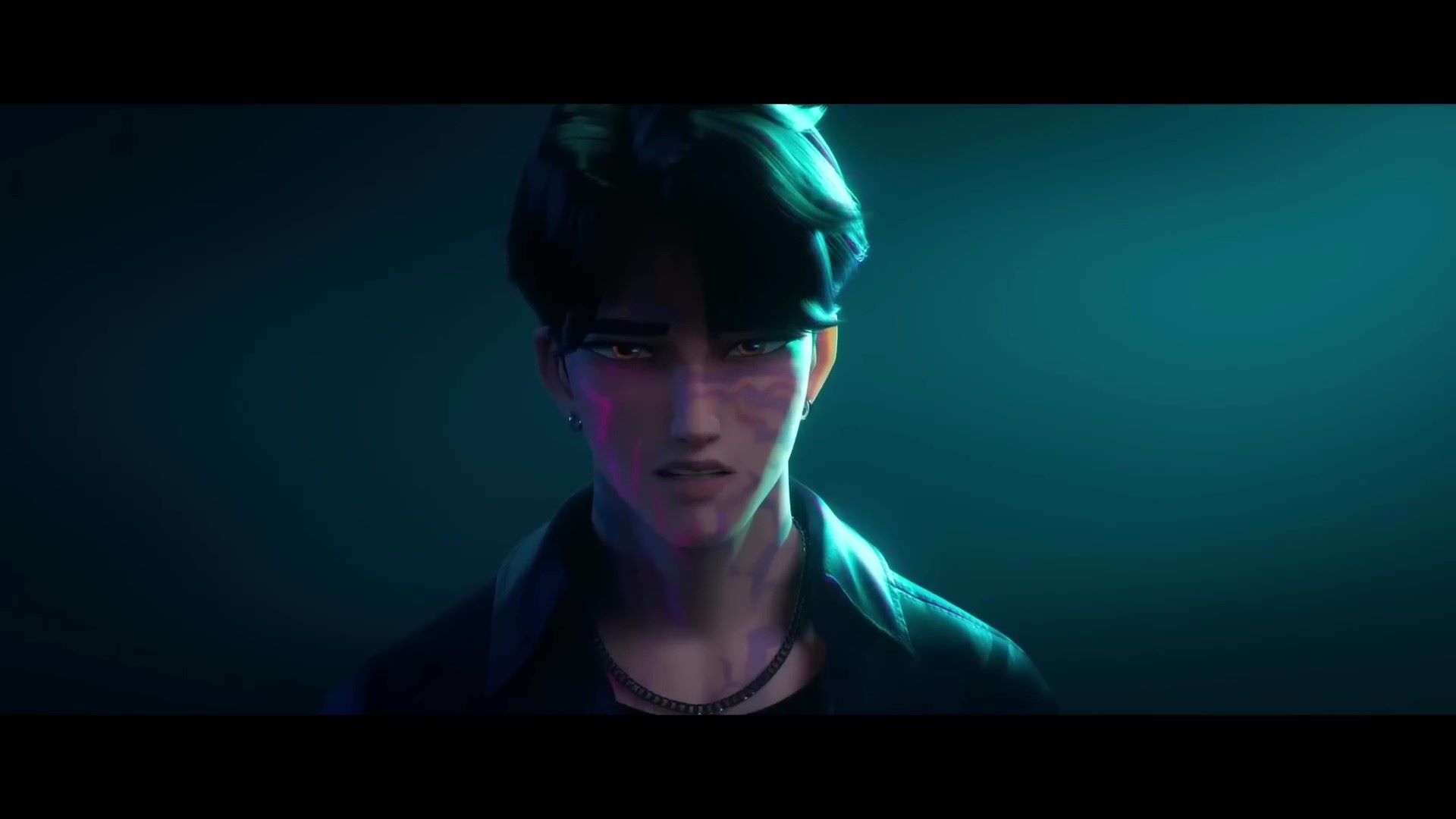The Tragic Love Story of Rumi and Jinu: Exploring K-Pop Demon Hunters' Most Complex Relationship

Netflix's animated sensation K-Pop Demon Hunters has captivated audiences worldwide with its unique blend of K-pop culture and supernatural storytelling. At the heart of this critically acclaimed film lies one of the most compelling and emotionally charged relationships in recent animation: the complex bond between Rumi and Jinu. Their quasi-romantic connection drives the narrative forward while exploring profound themes of self-acceptance, redemption, and the blurred lines between good and evil.
The Foundation of an Unlikely Connection
Rumi: The Half-Demon Hunter Struggling with Identity
Rumi serves as the main protagonist and leader of the K-pop girl group Huntrix, who secretly operates as demon hunters protecting the human world. What makes her character particularly fascinating is her dual nature as a half-demon, half-human being. This internal conflict becomes the cornerstone of her relationship with Jinu and the film's central narrative.
Rumi's character arc revolves around her deep-seated shame regarding her demonic heritage. She desperately conceals the demon marks on her arms, living in constant fear that her bandmates Mira and Zoey will discover her true nature. The story explores themes of shame and the toxicity of hating parts of yourself, with a big part of overcoming that being the catharsis of sharing some of that burden with someone else and finding grace through their acceptance.

Jinu: The Demon with a Tormented Past
Jinu leads the Saja Boys, a demon boy band, and carries a haunting past that weighs heavily on his conscience. His backstory reveals a tragic transformation from human to demon, driven by poverty and desperation. According to the detailed analysis, Jinu made a deal with the demon king Gwi-Ma 400 years ago, trading his humanity for a beautiful voice, ultimately leading to his family's destruction and his exile to the demon realm.
What sets Jinu apart from typical antagonists is his retained humanity and the guilt that consumes him. He becomes controlled by Gwi-Ma through "voices of shame and pain," making him a prisoner of his own past decisions rather than a willing servant of evil.

The Evolution of Their Relationship
First Encounters and Mutual Recognition
The initial meeting between Rumi and Jinu is filled with contradictions that perfectly establish their complex dynamic. Rumi experiences love at first sight when she sees Jinu, drawn to his striking appearance. However, their first interaction is less than romantic—Jinu accidentally knocks Rumi down while passing by, but instead of helping her up, he simply adjusts his shoulder and tells her to be careful, leaving Rumi shocked and angry.
This encounter sets the tone for their relationship: attraction mixed with frustration, understanding shadowed by conflict. When Rumi and her friends discover that the Saja Boys are actually a demon boy band with Jinu as a core member, the stakes of their connection become clear. Rumi notices Jinu has stolen her supplements and observes strange marks on his arms and neck, along with eyes that briefly turn yellow—clear signs of his demonic nature.
The pivotal moment comes during a bathhouse battle when Jinu scratches Rumi's arm with his demon claws and discovers the patterns on her skin, revealing her half-demon secret. Shocked, he asks, "A half-demon hunter?" When Rumi tries to hide her marks, Jinu pulls her into his embrace to protect her from being discovered by her friends, causing her to blush. He even secretly covers the torn part of her clothing with a cloth before quickly disappearing, leaving behind the fabric as a subtle gesture of care.
Building Emotional Intimacy
Rumi receives a note from Jinu requesting a meeting, and despite her initial anger, curiosity compels her to meet him. On the rooftop, Jinu attempts to break the tension with pranks, but Rumi remains hostile. The conversation takes a deeper turn when Jinu reveals he could have exposed her secret to her friends but chose not to, demonstrating an unexpected act of protection.
Their relationship deepens through private conversations where they share their deepest fears and secrets. Jinu opens up about not being born a demon but becoming one approximately 400 years ago. He speaks about his former family and how the demon patterns on his body constantly remind him of his shame. When he approaches Rumi, her hidden patterns begin to glow, and Jinu tells her that her patterns, like his, are reminders of shame she doesn't want to face.
In a moment of vulnerability, Jinu tries to comfort Rumi, telling her she can confide in him because he understands. Despite Rumi's denial of any similarity between them, Jinu understands her denial and promises to support her when she stops pretending. This exchange marks the beginning of their emotional bond—two beings caught between worlds, finding solace in shared understanding.
The Musical Connection and Healing Through Song
One of the most beautiful aspects of Rumi and Jinu's relationship unfolds through music. When Rumi asks Jinu if he's considered her plan that could grant him freedom, he admits he wants to believe it but doesn't think he's suitable to help her. Rumi responds emotionally, explaining that just being with Jinu has already helped her tremendously. She reveals that her voice has been damaged by hiding her true self out of shame, but since meeting and talking with Jinu, her voice has begun to heal.
Rumi begins singing a song about her shame and vocal struggles, with Jinu watching silently. Through her lyrics, she reveals that when she's with Jinu, she finally feels she can be herself—that he's good for her. She sings about hope for change, not alone, but fighting alongside him.
Jinu later joins the duet, his voice tinged with sadness. He admits that over time, he lost his perspective on life and saw hope as pain, choosing to forget it. He mentions how Rumi broke through the darkness in his heart, something he thought no one could do. He feels she awakened different parts buried within him. Jinu realizes that when he's with Rumi, he can truly be himself because no one sees him the way she does.
Their emotional duet becomes a highlight of the film, expressing their mutual longing for freedom and healing. They jump from the rooftop together, eyes meeting, with Rumi smiling and extending her hand, which Jinu takes without hesitation. As their duet ends, Rumi realizes her voice has returned, while Jinu discovers he no longer hears Gwi-Ma's voice. This musical moment represents not just their romantic connection, but their mutual healing and the hope they've found in each other.
The Betrayal That Shattered Trust
The Ultimate Betrayal and Heartbreak
At the International Idol Awards, Jinu's trap publicly reveals Rumi's demon form, leading her friends to distrust her. When Rumi confronts Jinu about whether he was behind it all, he reluctantly admits it was all lies. Despite this, Rumi insists that what they shared was real. Jinu pretends to have manipulated her, saying things against his heart, though deep down this isn't true.
Rumi still believes he's a good person because she knows his past. In anguish, Jinu shouts that he made a deal with Gwi-Ma to escape his miserable life and abandoned his mother and sister. Rumi refuses to believe this is the real him, insisting it's the demon influence and urging him to fight back. Jinu roars in a demonic voice, "It's not like that!" to which Rumi shouts back, "Yes, it is!" Jinu reminds Rumi that she, like him, is also a demon, destined to live in pain and misery because that's all they deserve. He then disappears, leaving Rumi alone.

This betrayal cuts deeper than any physical wound because it comes after they've shared their most vulnerable moments. The public humiliation of her demon marks not only devastates Rumi personally but also destroys her relationships with Mira and Zoey, who react with fear and rejection. What makes this betrayal particularly painful is that it follows their beautiful duet and the hope they'd found in each other.
The Complexity of Jinu's Motivations
What makes this betrayal particularly complex is the revelation that Jinu had partially fabricated his sob story. Rather than being purely a victim of circumstances, he admits to actively abandoning his family for a more comfortable life. This moral ambiguity adds layers to his character, making him neither purely sympathetic nor entirely villainous.
This narrative choice has sparked debates among fans and critics. Some argue that it undermines the film's exploration of demon complexity by making them appear "purely evil." Others contend that it provides a more realistic foundation for Jinu's eventual redemption, as true growth requires acknowledging one's genuine faults rather than just circumstances.
The Ultimate Sacrifice and Redemption
The Final Sacrifice: Love Conquers All
During the Saja Boys' performance, Rumi suddenly appears, interrupting Jinu's singing. Gwi-Ma mocks Rumi, but she insists she can create a new Honmoon. She begins singing with her normal voice, which restores Mira and Zoey to normal. Gwi-Ma angrily releases demons to attack them.
When Gwi-Ma fires a powerful shockwave at Rumi, she blocks it with her sword while Jinu watches with concern. In the climactic moment that defines their entire relationship, Jinu sacrifices himself to block the attack meant for Rumi. As Rumi cries out his name, not wanting him to sacrifice himself, Jinu painfully apologizes for everything he's done. Through her tears, Rumi tells him she only wanted him to be free.
In his final moments, Jinu tells her she did accomplish that—by giving his soul back to him. As he disappears, he says he's giving his soul to her, leaving Rumi to watch him fade away with a single tear falling. This ultimate sacrifice represents not just his love for her, but his choice to embrace the humanity she helped him rediscover.
The scene is made even more poignant by the knowledge that Jinu's sacrifice stems from genuine love rather than duty or obligation. Despite betraying Rumi earlier, his final act demonstrates that their connection was real and transformative for both of them.
The Symbolic Meaning of Sacrifice
Jinu's final act serves multiple narrative purposes. On a personal level, it represents his choice to embrace the humanity that Rumi helped him rediscover. On a thematic level, it demonstrates that redemption is possible even for those who have made terrible choices, provided they're willing to make the ultimate sacrifice for love.
The moment when Jinu gives Rumi his soul becomes one of the film's most emotionally resonant scenes. It symbolizes not just his love for her, but his belief that she deserves all the beautiful things in life—something he expresses in his final words.
Fan Reception and Cultural Impact
The "Rujinu" Phenomenon and Fan Community
The relationship between Rumi and Jinu has generated extraordinary fan engagement, with supporters embracing the portmanteau "Rujinu" (a combination of their names that was actually referenced in the film itself when a fan wore a "Rujinu" t-shirt). This level of fan investment demonstrates the emotional impact of their connection, despite its tragic end.
Fans have been captivated by every aspect of their relationship, from Rumi's love at first sight due to Jinu's striking appearance to the sweetness of Jinu sending letters to arrange meetings. Their duet is frequently cited as the film's highlight, and the gradual way they open up to each other has deepened the relationship's appeal. The "enemies-to-lovers" dynamic between the two K-pop group leaders has proven irresistible to audiences seeking complex romantic narratives.
The pairing became hugely popular after the film's release, particularly on social media where fans create numerous edits and adorable fan art. Even Sony Animation has joined the "shipping trend," acknowledging the popularity of this pairing. Many fans love their "fated enemies become lovers" setup and have created fan fiction with alternate endings where Jinu survives and lives happily with Rumi.
Popular fan theories include the idea that Jinu's soul is preserved in Rumi's sword, or that Jinu could be reincarnated—concepts that fans hope might be explored in potential sequels. These theories reflect the deep emotional investment fans have in seeing their relationship continue beyond the film's tragic conclusion.
As of now, there are over 500 works about Rujinu on Archive of Our Own (AO3), making it the most popular pairing in the fandom. This impressive number speaks to the lasting impact of their relationship and the creative inspiration it has provided to fans worldwide.
Critical Analysis and Debate
The relationship has also sparked meaningful discussions about moral complexity in animated storytelling. Some critics appreciate the nuanced portrayal of characters who exist in moral gray areas, while others question whether Jinu's betrayal undermines the film's message about understanding and compassion.
The film tells an intrinsically spiritual story, but its true message is about exposing sins and flaws in order to heal and grow. Rumi and Jinu's relationship embodies this theme perfectly, showing how vulnerability and acceptance can lead to profound transformation.
Thematic Significance and Legacy
Self-Acceptance Through Love
Rumi's journey toward self-acceptance is inextricably linked to her relationship with Jinu. Through loving someone else who struggles with their dual nature, she learns to embrace her own complexity. By the film's end, she no longer hides her demon marks, symbolically wearing more revealing clothing and joining her friends at the bathhouse—a powerful metaphor for her newfound comfort with her authentic self.
The Price of Redemption
Jinu's arc explores whether redemption requires the ultimate sacrifice. His death serves as both punishment for his past wrongs and proof of his transformed character. The ambiguity surrounding his potential return in future sequels keeps audiences invested in his fate and the possibility of continued growth.
Jinu's last words to Rumi were about how she had freed his soul, which could also mean that he may no longer be connected to the demon world and may be resurrected. This hint at potential resurrection maintains hope for fans while respecting the gravity of his sacrifice.
Breaking Down Barriers
Their relationship challenges traditional hero-villain dynamics by showing that understanding and empathy can bridge even the most fundamental divides. Rumi's ability to see past Jinu's demon nature to his human heart reflects the film's broader message about looking beyond surface appearances to find common humanity.
The Future of Their Story
Sequel Possibilities
The entire arc of K-Pop Demon Hunters changes after Rumi's big secret is revealed, which also sets the stage for all sorts of potential sequels. While Jinu's sacrifice provides closure to their immediate story, the film leaves several threads open for future exploration.
The survival of two Saja Boys members (Romance and Baby) and the incomplete revelation of Rumi's parents' love story (between a hunter and a demon) suggest that themes of cross-species romance and understanding will continue to be relevant in potential sequels. These elements could provide context for why Rumi was so capable of connecting with Jinu—perhaps it's a family trait.
Lasting Impact on Animation
K-Pop Demon Hunters' treatment of the Rumi-Jinu relationship sets a new standard for complex romantic subplots in animated films. By refusing to simplify their connection into clear-cut hero-villain dynamics, the film creates space for more nuanced storytelling that respects both character agency and moral complexity.
Conclusion: A Love Story for the Ages
The relationship between Rumi and Jinu in K-Pop Demon Hunters transcends typical animated romance by embracing complexity, moral ambiguity, and genuine emotional depth. Their connection serves as the film's emotional anchor while exploring themes that resonate with audiences of all ages: the struggle for self-acceptance, the possibility of redemption, and the transformative power of understanding love.
While their story ends in tragedy, it also offers hope. Jinu's sacrifice enables Rumi's growth and self-acceptance, while her love helps him reclaim his humanity. Together, they demonstrate that even the most unlikely connections can lead to profound transformation and that love truly can conquer the barriers we build between ourselves and others.
As fans eagerly await news of potential sequels, the legacy of Rumi and Jinu's relationship continues to inspire discussions about representation, moral complexity, and the power of animated storytelling to tackle profound human experiences. Their tragic yet beautiful love story ensures that K-Pop Demon Hunters will be remembered not just as an innovative blend of music and animation, but as a deeply moving exploration of what it means to love and be loved despite our flaws.
In a world where animated films often simplify relationships for younger audiences, K-Pop Demon Hunters dares to present love in all its messy, complicated, beautiful reality. The relationship between Rumi and Jinu stands as a testament to the medium's potential for emotional sophistication and its ability to create characters who feel genuinely human, regardless of their supernatural circumstances.
Related Content

About the Author
Alex Chen
K-Pop Culture & Animation Expert
Alex Chen is a Korean Wave culture researcher and animation film critic with over 5 years of experience analyzing the K-pop industry. Holding a Master's degree in East Asian Studies, Alex has contributed to major entertainment publications including Variety Asia and The Hollywood Reporter. With fluency in Korean, English, and Chinese, Alex brings deep cultural insights to K-pop and Asian animation content analysis.
Expertise & Credentials:
- M.A. in East Asian Studies
- 5+ years K-pop industry analysis
- Animation film critic & consultant
- Contributor to Variety Asia & THR
- Fluent in Korean, English, Chinese